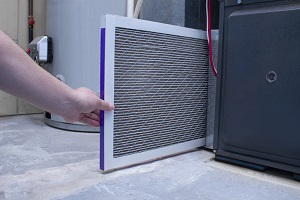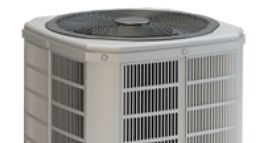Home Warranty Service Agreements, known commonly as home warranties, are a helpful financial tool for your clients. They can use them to protect their budgets when important systems and appliances break down in their homes from normal wear and tear. However, there are many myths about Home Warranty Service Agreements that don’t hold water. Here are seven of the most pervasive and incorrect myths about Home Warranty Service Agreements.
1. A Home Warranty Service Agreement covers everything

A Home Warranty Service Agreement can reduce the costs of breakdowns to certain systems and appliances when normal wear and tear is the cause. But perhaps the biggest myth about Home Warranty Service Agreements is that they cover everything.
They don’t, they never have, and anyone who says they do is doing you and your clients a disservice.
But just because they don’t cover everything doesn’t mean they’re not important. For example, it could cost homeowners anywhere between $425 and well over $3,000 to address an HVAC breakdown. A Service Agreement can vastly reduce those costs for your clients.
For example, consider Supreme Buyer coverage from 2-10 Home Buyers Warranty (2-10 HBW). Here are just a few of the home’s most important home items it can protect:
- HVAC system: 2-10 HBW offers the most comprehensive HVAC coverage on the market, including SEER matching and unlimited refrigerants.
- Plumbing system, including water heater: Water heater breakdowns can be both expensive and a home ownership nightmare. 2-10 HBW can cover these major systems.
- Electrical system: Includes switches, outlets, panels, and wiring.
- Appliances: From the refrigerator and oven to the washer and dryer, you can help protect your Buyer’s most important items.
In short, a Home Warranty Service Agreement may not cover everything, but it can cover the most important things. And that can make all the difference to your clients.
2. Home Warranty Service Agreements don’t actually cover anything

At the other extreme is the idea that Home Warranty Service Agreements don’t cover anything at all. This is just as inaccurate as saying they cover everything.
Home Warranty Service Agreements cover specific items that break down from routine wear and tear. Covered items vary based on the plan agents or homeowners choose. Thankfully, 2-10 HBW has created transparent Service Agreements that carefully outline coverage terms, conditions, limits, and exclusions.
However, say you recommend Supreme Buyer coverage to a client, but they decide that they only want Standard Buyer coverage. In this case, if your client’s washer or dryer were to break down from routine use, their Service Agreement wouldn’t apply to that breakdown. That’s because washer and dryer coverage aren’t part of Standard Buyer coverage.
Home Warranty Service Agreements cover select home items against breakdowns caused by routine wear and tear. The list of covered items depends on the coverage you or your clients choose.
3. Filing a claim is difficult and time consuming

We can’t speak for other companies, but with 2-10 HBW, filing a claim isn’t as difficult or time consuming as you’d think. Here’s how it works when one of your clients has a Service Agreement and suffers a covered breakdown:
- Client requests Service. Your client requests Service via their online account or by phone.
- 2-10 HBW dispatches. After we receive the request, we assign a Service Contractor to contact the homeowner to set up an appointment.
- Contractor diagnoses. Your client pays the Service Contractor a Service Fee. Then, the Contractor diagnoses the problem and reports back to 2-10 HBW.
- 2-10 HBW reviews coverage. We review the diagnosis to determine coverage eligibility and provide authorization to repair or replace a Covered Item.
- Happy home. Your clients get peace of mind.
4. A Home Warranty Service Agreement is the same as homeowners insurance

While homeowners insurance and a Home Warranty Service Agreement may seem similar, they really aren’t.
In general, homeowners insurance covers damage or losses from things like fire, theft, or weather. It may also provide liability coverage if someone were hurt or killed on your property.
A Home Warranty Service Agreement covers breakdowns to important home items cause by routine wear and tear.
5. It doesn’t matter which home warranty company homeowners use

While most home warranty companies offer the same general services, not all companies are created equal. Different companies have different things they cover, different limits and exclusions, and different ways of addressing breakdowns.
Be sure to research a company before committing to the purchase of a Service Agreement. Consider asking questions about the following:
- How long the company has existed
- The percentage of claims that get paid out
- Whether the company has 24/7 customer service support
To help your clients find the right fit for them, share this article about how to compare home warranty companies the right way.
6. Home Warranty Service Agreements are expensive

The cost of a Service Agreement varies, but the price is surprisingly affordable. Most basic plans range from $400 to $600 per year. Considering that the average home needs repairs more than twice per year, and that those repairs can cost up to 1% of the home’s original purchase price, it’s easy to see why the cost of a Service Agreement is quite reasonable.
7. Home maintenance can be ignored

You wouldn’t dream of neglecting to change your car’s oil regularly, and home maintenance is no less important. A Home Warranty Service Agreement protects against the failure and/or breakdown of a home’s most important systems and appliances, but not if those breakdowns are due to lack of proper maintenance.
Homeowners must understand that they still need to take good care of their HVAC system, major appliances, and other important systems and appliances in the home.
2-10 HBW offers comprehensive systems and appliances home warranties to help protect your clients from unexpected repair and replacement costs. Contact us to learn more.
Related content
How a Home Warranty Protects Homes, No Matter Their Age








